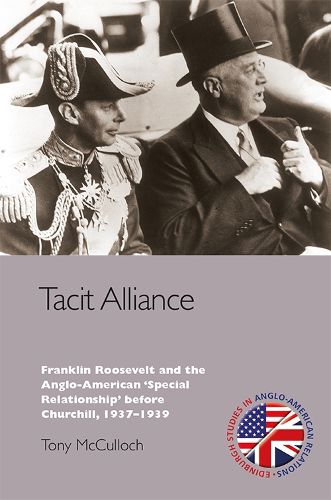Readings Newsletter
Become a Readings Member to make your shopping experience even easier.
Sign in or sign up for free!
You’re not far away from qualifying for FREE standard shipping within Australia
You’ve qualified for FREE standard shipping within Australia
The cart is loading…






Locates the immediate origins of the Anglo-American ‘special relationship’ in the diplomacy of Roosevelt’s second administration in the late 1930s. In February 1938 Senator William Borah, an inveterate isolationist, accused the Roosevelt Administration of forming a ‘tacit alliance’ with Britain. Taking Borah’s remark as its starting point, Tony McCulloch analyses Anglo-American relations from the start of Franklin D. Roosevelt’s second term in January 1937 through to the outbreak of war in Europe and the revision of the US Neutrality Act in November 1939. The book’s central argument is that despite the mutual doubts afflicting the governments, and public opinion, on both sides of the Atlantic during these years, there was nevertheless considerable progress
thanks largely to Franklin Roosevelt
in establishing an ideological and strategic understanding between the two democracies which laid the foundation for the ‘special relationship’ so desired by Winston Churchill during and after the Second World War.
$9.00 standard shipping within Australia
FREE standard shipping within Australia for orders over $100.00
Express & International shipping calculated at checkout
Locates the immediate origins of the Anglo-American ‘special relationship’ in the diplomacy of Roosevelt’s second administration in the late 1930s. In February 1938 Senator William Borah, an inveterate isolationist, accused the Roosevelt Administration of forming a ‘tacit alliance’ with Britain. Taking Borah’s remark as its starting point, Tony McCulloch analyses Anglo-American relations from the start of Franklin D. Roosevelt’s second term in January 1937 through to the outbreak of war in Europe and the revision of the US Neutrality Act in November 1939. The book’s central argument is that despite the mutual doubts afflicting the governments, and public opinion, on both sides of the Atlantic during these years, there was nevertheless considerable progress
thanks largely to Franklin Roosevelt
in establishing an ideological and strategic understanding between the two democracies which laid the foundation for the ‘special relationship’ so desired by Winston Churchill during and after the Second World War.